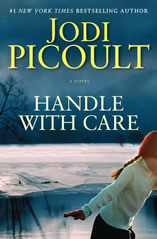**Spoilers this time**
This may be considered as cheating in book-blog land, but I want to talk about all five Percy Jackson books together. Because to me, there really is one big story arc that ties them altogether. They’re broken down into very digestible pieces (which is good considering they are young adult adventure fiction), but to me, once you get going it’s hard to stop until the resolution in book 5.
I watched the movie before I embarked on the journey though the books. Because of that, in some ways
The Lightning Thief was ruined for me. The movie changes quite a number of things from the book, and I was pretty distracted by them. Instead of being able to sit back and enjoy the extra characters (some of them quite important) and the different circumstances (some of them quite pivotal), I found myself impatient to get through to events I knew were coming. Probably not the books fault. If I had read it first, I’m sure I would have had a different experience.
One of things I really enjoyed about this series is that Percy Jackson isn’t the only hero. For example, in
The Sea of Monsters, he isn’t chosen to lead (or even go on) the quest to recover the Golden Fleece. So for me, the Percy Jackson series shares more with Lord of the Rings than it does with Harry Potter. Why? Because each member of the Fellowship had moments of glory, and things that made them heroes in their own right. Frodo had to carry the ring, Aragorn had to claim the throne of Gondor, Glorfindel saved the day at Helm’s Deep, etc. I really like that in this series lots of the demigod children get the chance to shine and have their moment. Getting back to book 2. I love the character Tyson -- Percy’s cyclops half-brother. He can seem a little simple at times, but appearances are deceiving. He’s got the heart of a lion, and is constantly proving that a person doesn’t have to follow the stereotype. What a great character! And I adored the final line of the book. It was a game changer, and makes you want to pick up the next book and keep right on going. (That’s exactly what I did).
The final three books really string together. The big bad guy remains the same, and some key characters face challenges that span through the rest of the story arc to the end of the saga.
I think
The Titan’s Curse was the first book I really truly enjoyed. Percy is off on another rescue mission (a common occurrence in the series). And for some reason, things started hitting their stride for me -- from the different characters to the pacing to the humor. I also love it because you get to meet Nico. He’s one of my favorite characters in the series. I really liked the way he grows and develops. He doesn’t walk an easy path, and I enjoyed watching his choices and character unfold.
The
Battle of the Labyrinth gets heavier and darker in tone. Much more time is spent in the realm of the Underworld, so there are more eerie and spooky things. I didn’t notice at first because I was firmly in Rick Riordan land. But I found out that a friend’s daughter had started with the fourth installment, and was strongly discouraged from reading the others. That changed my perspective a bit, and I started seeing how it could be quite scary for younger readers.
After another cliffhanger ending, the fast paced plot that started in Titan’s Curse carries through the end of
The Last Olympian. And while I liked the 3rd book a lot, I think the finale is my favorite. You learn a lot of back-story of Luke, Annabeth, and Thalia. And the theme of “family” comes full circle. **Big spoiler** I loved the theme of family that concludes in The Last Olympian. The love of family, even if it’s a family of choice and not of blood, is what helps Luke to make an important decision. The importance of family is a major bargaining chip in confrontations between Percy and several of the gods. And there is a strong message for parental support, attention, and involvement in the last book (really in the whole series). i.e. If the Greek gods had been more involved in their children’s lives, many things could have turned out differently. And I think Percy’s last big choice (and his reasons behind it) in the book would make for wonderful discussion with one’s own child.
Overall: I thought it was a satisfying series. True, it is a little juvenile in tone. But I think that’s completely appropriate since it’s meant for a younger audience. I liked the contemporary spin Riordan gives to classic Greek mythology. It was fun to remember (and learn more of) the tangled web of roles and relationships held by the Titans and Olympians.
One other thing I really liked: Each of the main characters has a “fatal flaw,” and each are given the chance to overcome it. As I mentioned before, I found Nico’s journey the most dramatic. But all the major characters – Percy, Annabeth, Thalia, Nico, Clarisse, Grover, Tyson, Luke – are given the chance to face their flaws and triumph (or fail *wink*) in turn.
And it will be redundant, but I love good message of love, family, loyalty, and selflessness. All are included in the Percy Jackson series. Add in the constant stream humor and action, and I think it makes for a wonderful literary adventure. It’s just plain fun…with a lot of heart to boot.






















